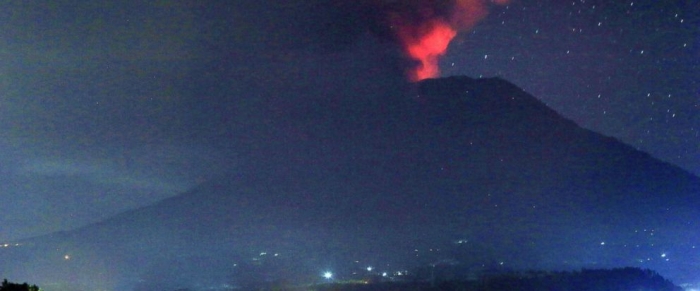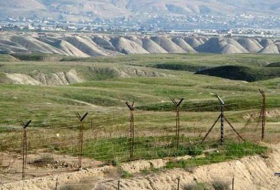Australian airline Jetstar, which canceled nine flights to and from Bali on Saturday evening, said most of its flights will operate normally Sunday after its senior pilots assessed it was safe to fly. However it warned that the movement of ash cloud is highly unpredictable and flights could still be canceled at short notice. Virgin, KLM and Air Asia Malaysia also canceled several flights Saturday.
Disaster officials said ash up to half a centimeter (less than an inch) thick settled on villages around the volcano and soldiers and police were distributing masks.
Government volcanologist Gede Suantika said a red-yellow light visible in ash above the mountain was the reflection of lava in the crater. Suantika said Agung could spew ash for at least a month but did not expect a major eruption.
Authorities warned anyone still in the exclusion zone around the volcano, which extends 7.5 kilometers (4.5 miles) from the crater in places, to leave.
Agung also had a minor eruption on Tuesday but authorities have not raised its alert status from the second highest, which would widen the exclusion area and prompt a large evacuation of people.
About 25,000 people have been unable to return to their homes since September, when Agung showed signs of activity for the first time in more than half a century.
The volcano's last major eruption in 1963 killed about 1,100 people.
Indonesia sits on the "Pacific Ring of Fire" and has more than 120 active volcanoes.
Mount Agung's alert status was raised to the highest in September following a dramatic increase in tremors from the volcano, which doubled the exclusion zone around the crater and prompted more than 140,000 people to leave the area. The alert was lowered on Oct. 29 after a decrease in activity.
More about: #Bali















































